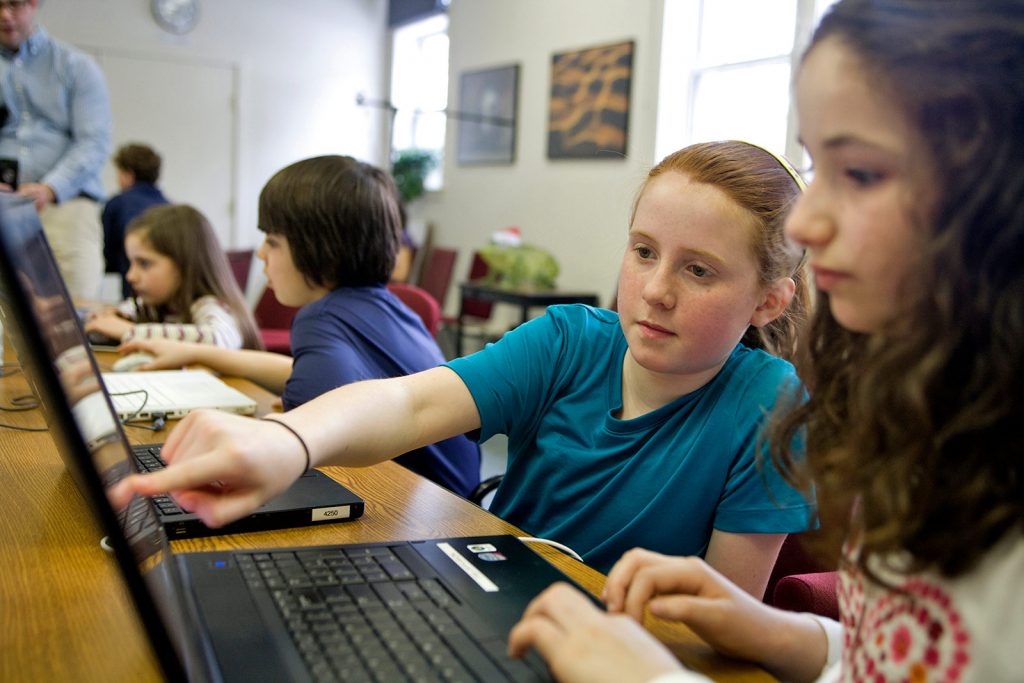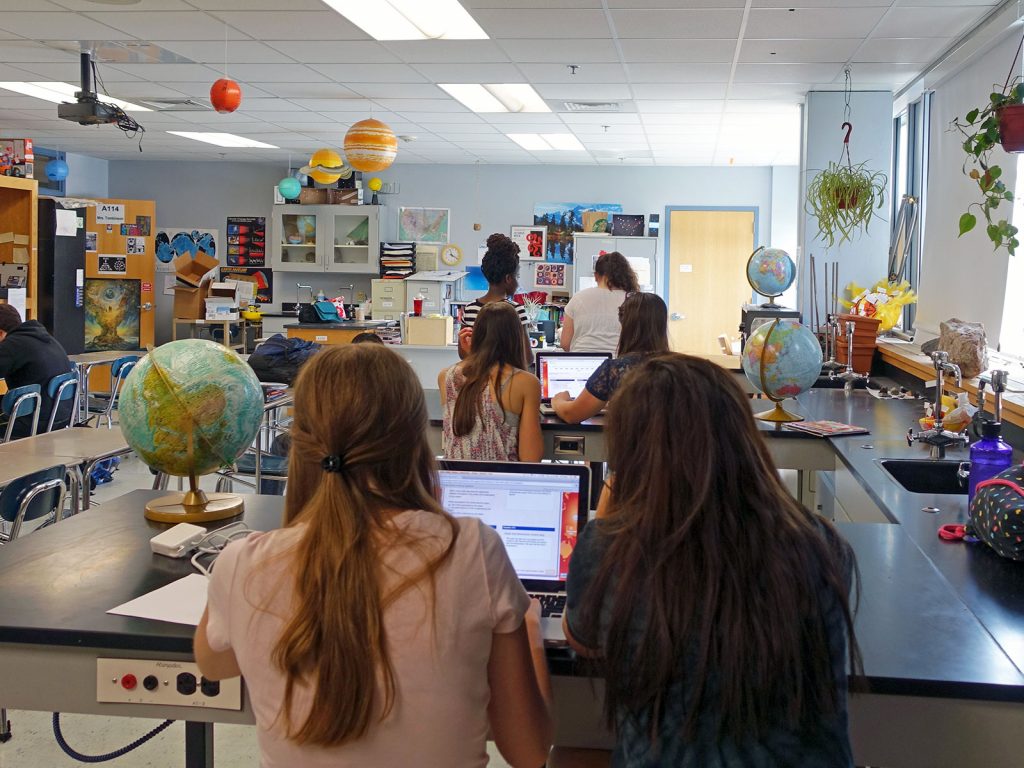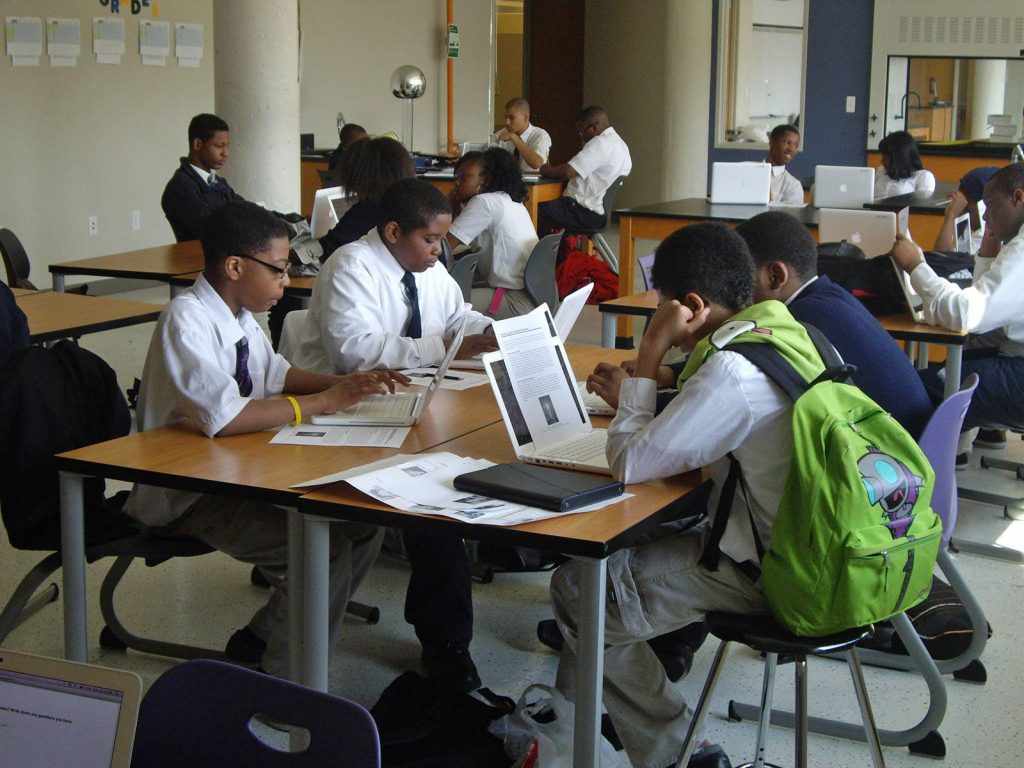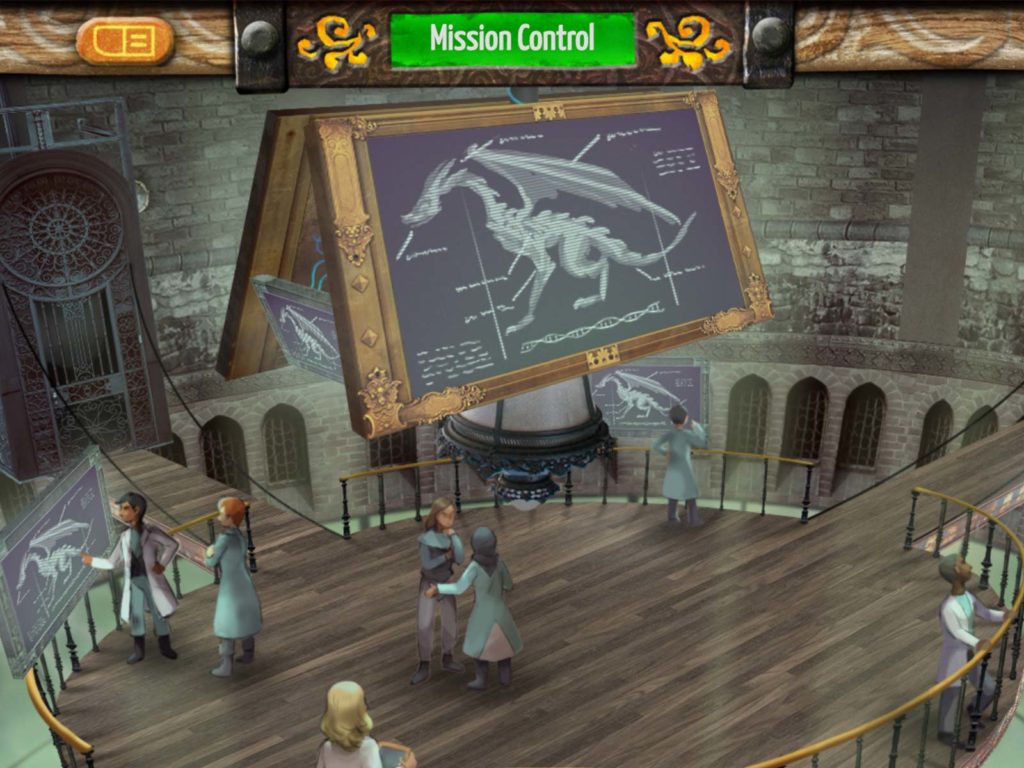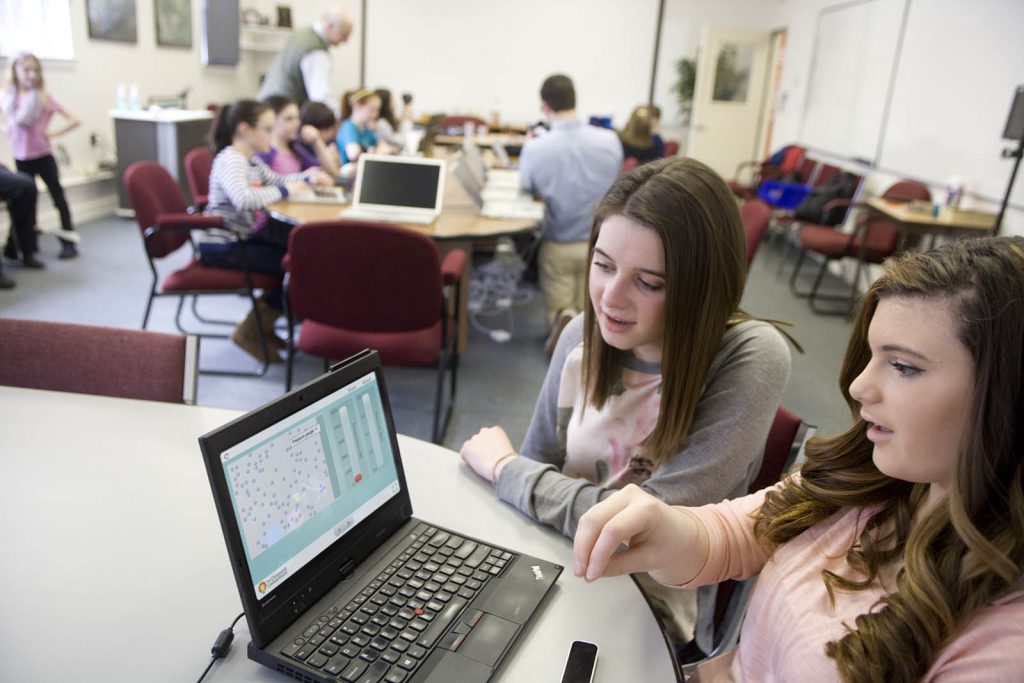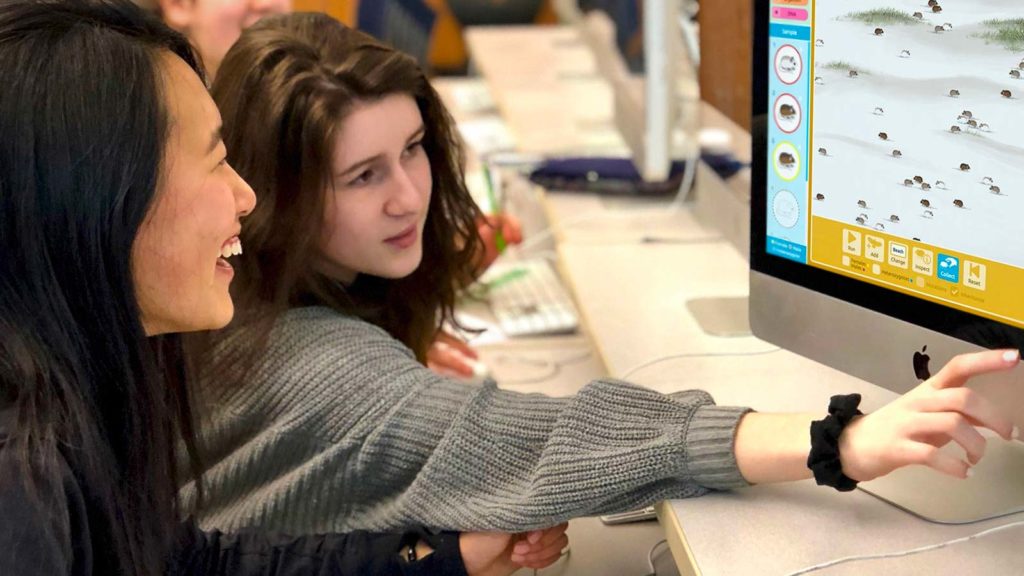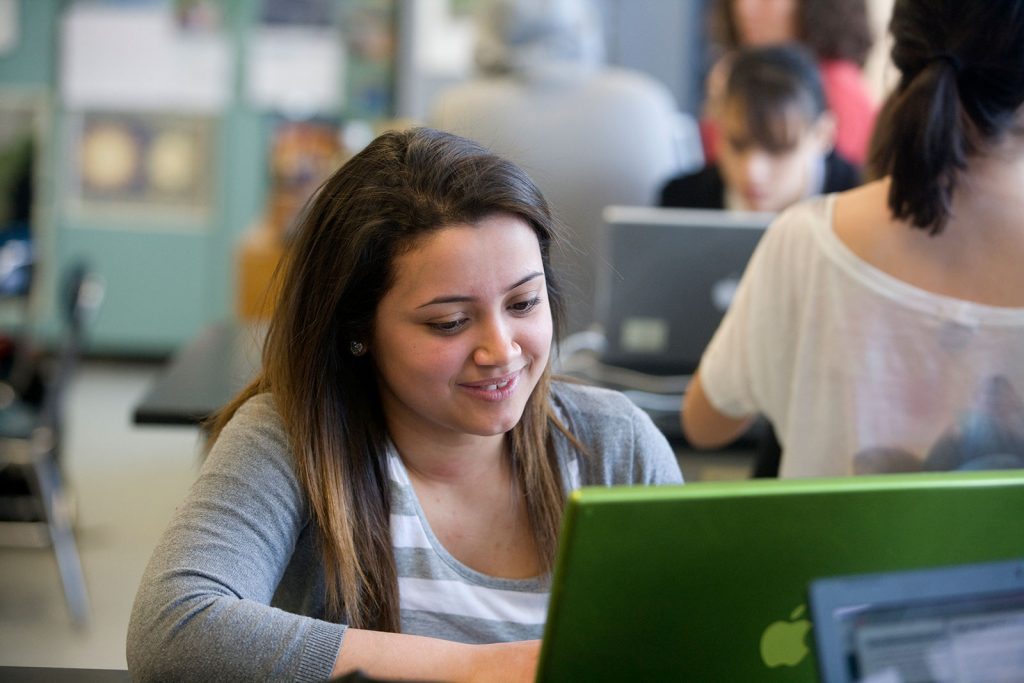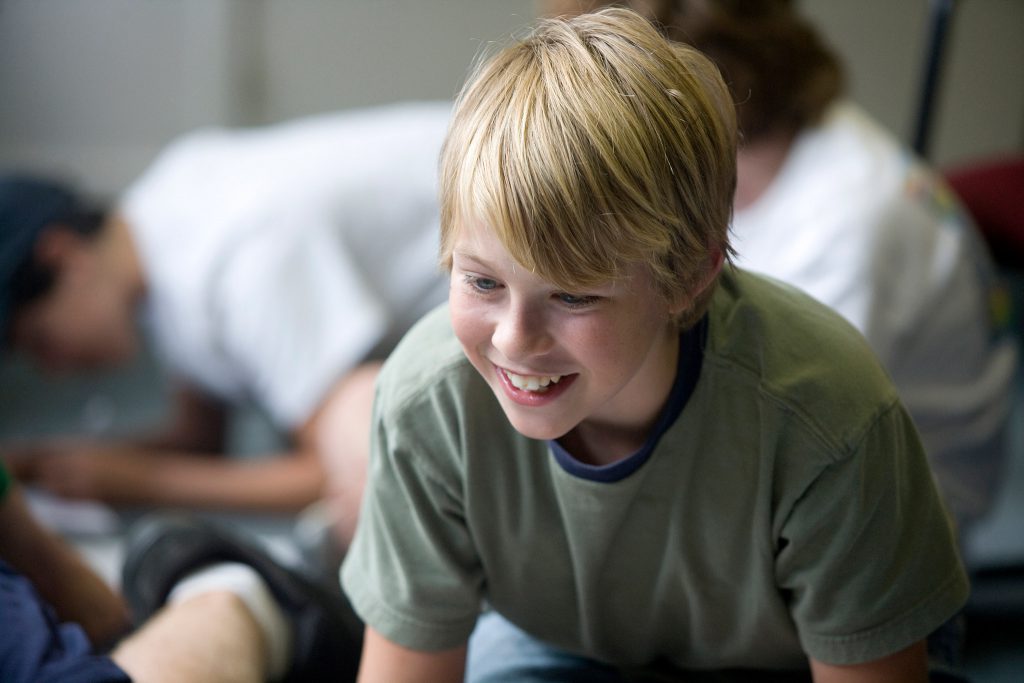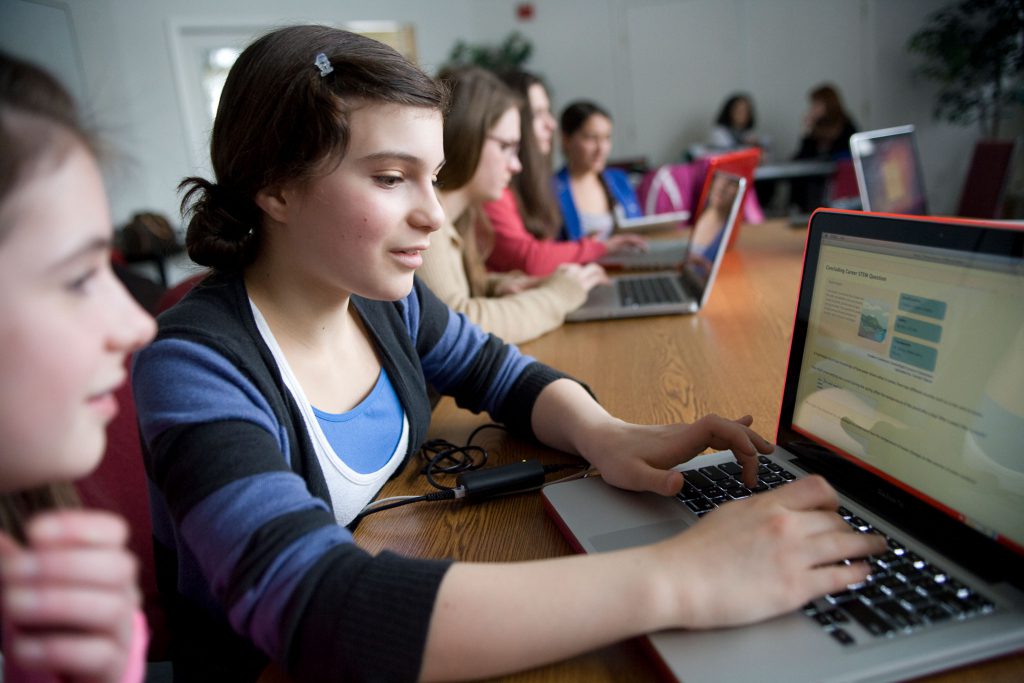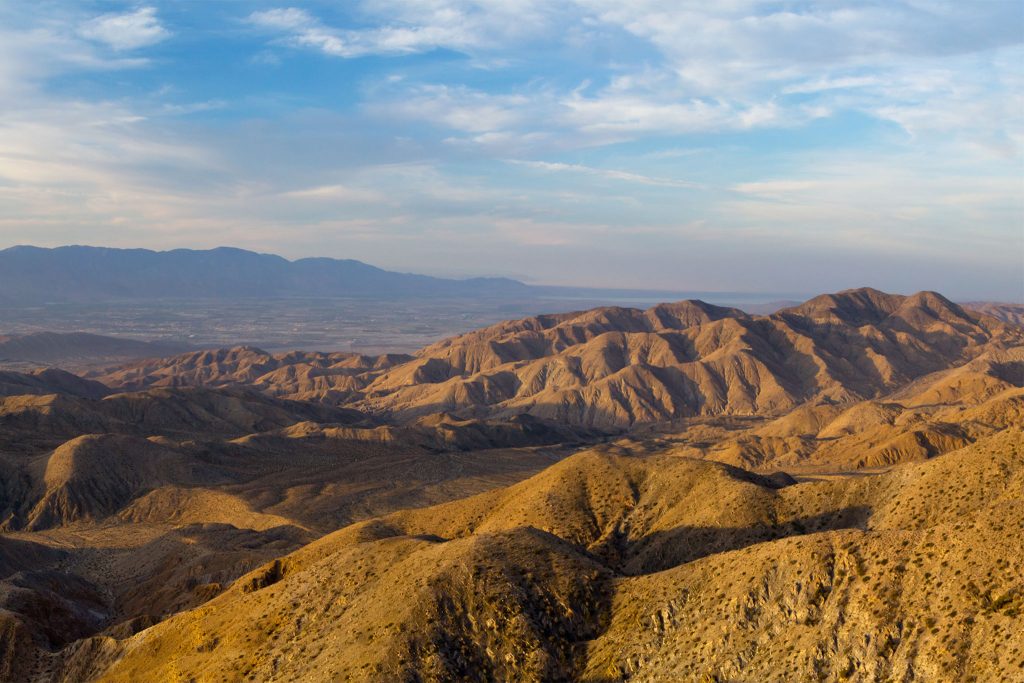Category: Focus Area: STEM Models & Simulations
Experiencing models of severe weather events allows students to monitor live radar screens and collect data as virtual thunderstorms pass through the classroom. Students will apply computational thinking skills as they create, evaluate, and combine forecast models.
We’re enabling new modes of experimentation and fostering levels of learner reasoning about complex systems and systems dynamics that are not currently possible by merging MIT’s StarLogo and the Concord Consortium’s SageModeler.
Computer-based models and simulations as well as physical models help students visualize and develop an understanding of the principles that govern interactions at very small scales.
GeniConnect is developing and researching a coherent series of student experiences involving game-based learning, industry mentoring, and hands-on laboratory work in biotechnology and genetics.
GRASP (Gesture Augmented Simulations for Supporting Explanations) studies the role that motions of the body play in forming explanations of scientific phenomena. We’re conducting studies with middle school students, gathering data to apply to enhancing educational tools.
This collaborative effort between Michigan State University and the Concord Consortium is developing and researching a connected set of technology-enhanced three-dimensional lessons for high school biology that are aligned with NGSS performance expectations.
In collaboration with the Educational Testing Service (ETS), we’re using an automated scoring engine to assess students’ written responses in real time and provide immediate feedback within two Earth science curriculum modules.
InquirySpace gives students tools, guidance, and ideas that greatly expand the range and sophistication of meaningful open-ended science investigations.
Michigan State University and the Concord Consortium are collaborating to examine how to support secondary school students in constructing and revising models based on disciplinary core ideas and crosscutting concepts to explain scientific phenomena.
GEODE aims to transform geoscience teaching and learning using interactive, geodynamic models designed to explore how plate movements are responsible for most features on Earth’s surface.
